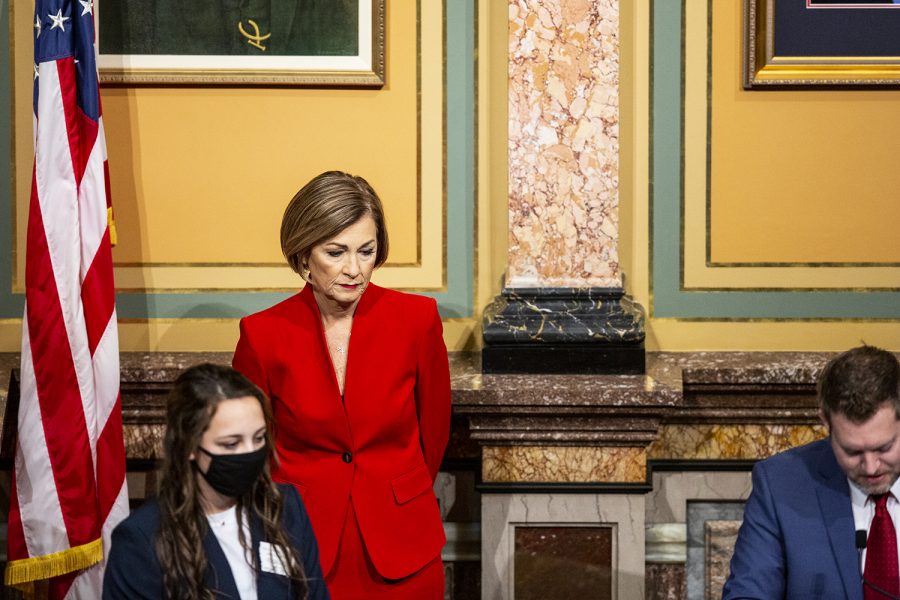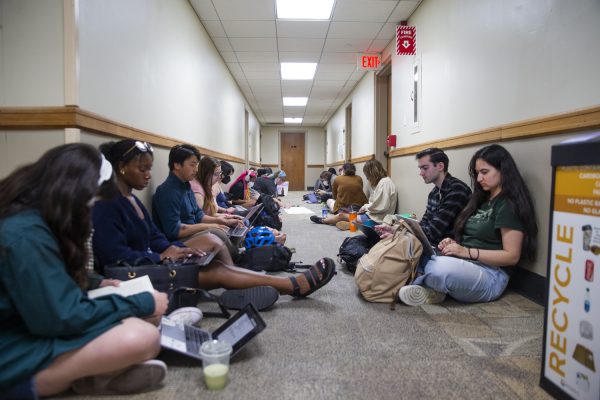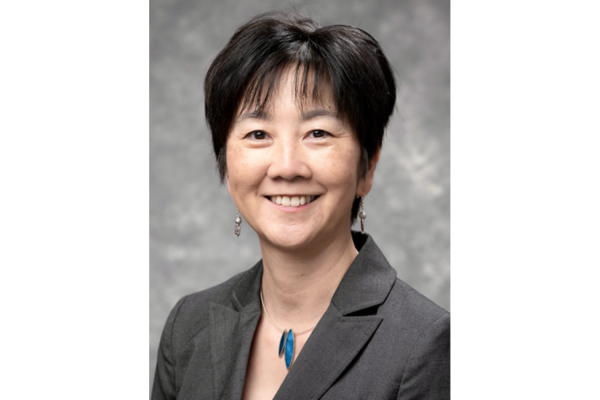University of Iowa professors say new law prohibiting ‘divisive concepts’ misrepresents critical race theory
The state Board of Regents will review processes to ensure compliance with the new law prohibiting “divisive concepts” and critical race theory.
Ryan Adams for the Daily Iowan
Gov. Kim Reynolds listens to Senate President Jake Chapman speak during the State of the State address in the house chamber of the Iowa State Capitol on Tuesday, Jan. 12, 2021 in Des Moines. Gov. Reynolds highlighted in the address expansion of broadband internet, a push for in-person learning, and economic recovery from the COVID-19 pandemic.
June 14, 2021
Iowa Gov. Kim Reynolds signed a bill into law June 8 that will prohibit teaching critical race theory and “divisive concepts” in K-12 and higher education, in school curricula, and in mandatory diversity, equity, and inclusion training.
Venise Berry, the University of Iowa African American Studies department chair, said critical race theory is misunderstood. She said critical race theory highlights certain elements that are tied to race that are critical and important for Americans to pay attention to.
“Teaching critical race theory is not about telling white students they’re racist,” Berry said. “It’s about helping all students understand the environment that we live in and experience in this system. That it’s positive, in relation to race, but also its negative in relation to race.”
Josh Lehman, the state Board of Regents senior communications director, wrote in an email to The Daily Iowan that the regents and Iowa’s regent-governed universities will review processes to ensure compliance with the new law.
“The Board and our universities strongly believe in free expression, and have spoken out frequently in their support of free speech and the First Amendment,” Lehman wrote to the DI. “We will continue to fight for the rights of all students, faculty, and staff to have all voices and opinions heard. We must hear all viewpoints without stifling speech.”
The law (HF 802), effective July 1, covers nine “divisive concepts” in training and education.
- The idea that one race or sex is superior to another race or sex is prohibited.
- Teaching that the United States and Iowa are fundamentally or systemically racist or sexist is prohibited.
- The idea that an individual race or sex is inherently racist, sexist, or oppressive is prohibited.
- Discrimination or adverse treatment of an individual because of their race or sex is prohibited.
- Members of one race should not attempt to treat others without respect based on race or sex.
- The idea that an individual’s morals are determined by race or sex is prohibited.
- That idea that traits like “hard work ethic” are racist or sexist is prohibited.
- Race or sex scapegoating is prohibited.
- Race or sex stereotyping is prohibited.
Leslie Schwalm, chair of the Department of Gender, Women’s, and Sexuality Studies at the UI, said as someone who teaches about systemic racism and the history of institutionalized racism, the prohibited “divisive concepts” are irrelevant to her course curricula.
“No one teaches that members of a race or sex are inherently racist, sexist, or oppressive,” Schwalm said. “In fact, one of the things that critical race theory helps us understand is that racism isn’t about individual acts of discrimination, but rather about the system.”
While the new law prohibits “divisive concepts,” the term “critical race theory” is not stated in the bill.
In a statement from June 8 regarding the law, Reynolds said, “Critical race theory is about labels and stereotypes, not education.”
According to June 9 data from Chalkbeat, Republican governors or legislators in 21 state governments have proposed or passed legislation across the country “to restrict education on racism, bias, the contributions of specific racial or ethnic groups to U.S. history, or related topics.”
Berry said the law and other censoring instances could lead UI faculty of color to leave.
“Laws like these are the kinds of things faculty of color look at when they interview and apply,” Berry said. “I just would like to see our state government focus more on the needs of the people than on these culture issues that they blow out of proportion.”















